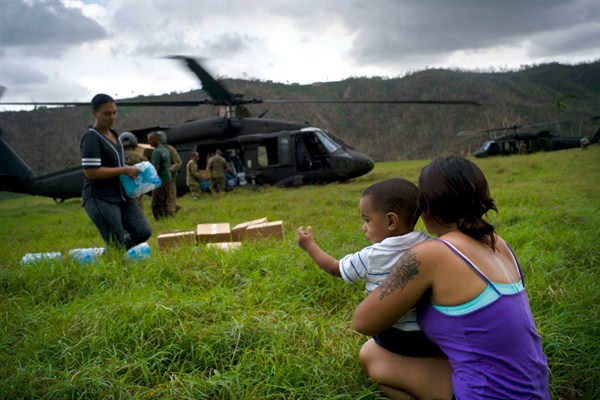This week, many Americans savor the seasonal culinary delights of Thanksgiving, while around the world, food insecurity is on the rise, particularly in places suffering from conflict or acute climate disruptions. The Saudi-led blockade of Yemen is being investigated by the United Nations as a war crime. Across the globe in Puerto Rico, it took a celebrity chef, Jose Andres, to help respond to critical food needs after Hurricane Maria, cooking whatever was available locally for a population without electricity or sufficient support from the U.S. government. The implications for policymakers cover a gamut of issues around food security, from humanitarian response capacities to strategic investments in agriculture to even civil-military relations.
As part of its campaign against Iran for supporting the wrong side in the Yemeni civil war, Saudi Arabia has blocked sea and air access to the Arab world’s poorest country. For a population already at a high risk for famine and coping with a cholera epidemic, the consequences of a lack of food and medicine have been catastrophic. Amid international outcry, the Saudis began to relent last week.
Riyadh still wants the U.N. to inspect shipments to ensure that no weapons are reaching Houthi rebels, who have gained the upper hand in the past two years. The Saudis and their partners allege that the Houthis, who are Zaydi Shiites, are proxies for Iran—just one arena of the growing geopolitical battle between Tehran and Riyadh. The food needs of the Yemeni population, unfortunately, are a secondary consideration for both rivals.

